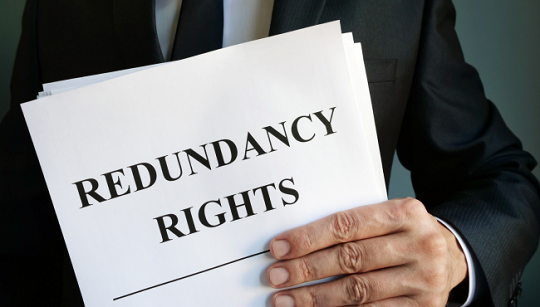Understanding Redundancy: Rights and Obligations for Employers

Redundancy is a tricky subject for employers and understandably needs to be handled carefully. Of course, being made redundant can be a very stressful experience for those being made redundant as well as for any remaining workforce, so it is important for employers to make sure that redundancy is unavoidable.
Avoiding Redundancies
There are a number of actions that you can take to reduce or even avoid redundancies. For example:
- Offering voluntary redundancy
- Changing working hours
- Moving employees into other roles
- Reducing temporary or contract workers
- Reducing or stopping overtime
- Avoiding hiring any new employees
Redundancies as a Result of Ceasing Business
In the event that your business is ceasing to trade, you are entitled to make staff redundant. This also applies if you intend to cease continuing the business, or the work performed by employees in a location that they are employed has, or soon will, cease or diminish.
For staff have been employed by you for two years or more, you must follow a fair redundancy process at the time their employment will end. It is strongly advisable to have a redundancy process available in your Staff Handbook, and to follow to the letter to ensure that your staff are aware of the process that will be followed. Your redundancy process must include details of how you will choose people for redundancy, how long the process will take, what meetings will be held and when, and also how staff can appeal if they are chosen for redundancy.
What Does a Fair Redundancy Process Look Like?
A fair redundancy process will include a face-to-face meeting during which you need to discuss a variety of topics with your staff members. These topics may include reasons why you need to make redundancies, why you are considering the individual staff member for redundancy, and to discuss other jobs that are available within the business. Staff should be encouraged to as any questions they may have about next steps and may wish to bring someone from their Union or HR to this meeting to help them take notes.
Fair Selection Processes
Fair selection processes must be undertaken for redundancies which may include asking for volunteers, a last in, first out policy, staff appraisal scores, skills, qualifications & experience, and consideration of disciplinary records.
If you are closing down a whole operation in a company and making all the employees working in it redundant, or there is only one employee in the part of the organisation that is being closed, then you will not be required to follow a selection process.
In addition, if you have a suitable alternative position, you must offer this to the employees that are being made redundant.
Unfair Dismissal
If your employees were employed by your business for over two years, and you fail to consult with the employees affected by the redundancies then they have a right to claim for unfair dismissal. It’s important to be vigilant when following fair selection processes as your employees will have a right to claim for unfair dismissal if you have selected them for redundancy based on a variety of reasons including their sex, race, age, and more.
Seeking Legal Support Regarding Redundancies
Here at RDC, we have the experience and knowledge to advise employers on the matter and help you to ensure that any problems concerning your employees do not turn into disputes. If any problems do turn into disputes, we can prepare a legal support plan for you to obtain commercial legal expenses insurance cover to protect you.
In addition, if you wish to prepare suitable policies and procedures, we can work with you to ensure that any minor difficulties are dealt with quickly and efficiently. If you do not have the processes in place ready for if you have to make redundancies, we can also assist with this. For support and advice, please call us on Bingley 01274 723858, Ilkley 01943 601173 or Bradford 01274 735511.


